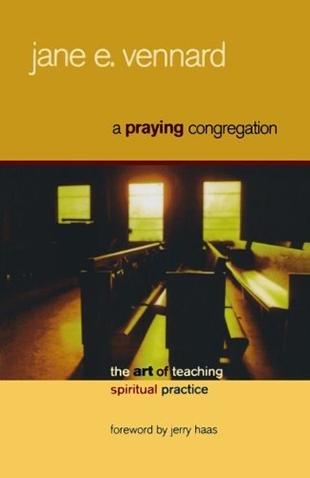"I believe that anything we do that honors, strengthens, or deepens our relationship to God can become a form of prayer. Does this mean that anything we do can become a prayer? Yes, but everything is not automatically a prayer. To fashion our actions into prayers, we need to examine our intention for the activity and God's intention for us. I believe that God intends for us to live according to God's desire that everyone participate in bringing about the reign of God — a world where justice and peace prevail. Therefore, a person swimming as part of her rehabilitation from surgery can turn that action into prayer when she honors God's desire for her wholeness and healing and responds by offering the period of exercise to God.
" 'Swimming is my deepest form of prayer,' a woman recovering from knee surgery once told me. 'I imagine I am breathing in God's love and breathing out my worries. And then, because my injured body is so cumbersome on land, I am grateful for how the water holds me up and gives me rest even as I swim. This reminds me how God's love does that for me every moment of every day.'
"With the intention to honor God, we can make everything we do a prayer if our actions contribute in some way to a just and peaceful world. Doing the laundry for our family, sending a message to a friend, reading a recently published memoir, creating a garden, going to a political meeting, listening to or making music, dancing in the rain — all of these actions can become prayer. Does this seem odd? Does this seem too easy? Shouldn't prayer be more ritualized, more regular? Certainly there are times when we want to offer more formal prayers, and we long for special time set aside to be with God and God alone. But how many hours out of the week do we make time for those forms of prayer? When we broaden our concept of prayer, we are able to be attentive to God during much of our daily activities. I believe that making all we do a form of prayer is what the apostle Paul meant when he told his disciples to pray without ceasing (1 Thess. 5:17). It is also what Brother Lawrence, the seventeenth-century monk who made all his kitchen chores prayer, called 'practicing the presence of God.'
"If you set out to turn all you do into prayer, be gentle with yourself, for if you are like I am, you may find it is more difficult to pray without ceasing than it sounds. I often begin with good intentions, but very quickly my mind wanders, and I have forgotten that I want to deepen my relationship with God through a specific action. I begin to grumble as I fold load after load of laundry. I become frustrated and dispirited at a meeting. I begin to count my worries as I garden. When you notice your attention has shifted, gently bring it back, and know that in your humanness, it will shift again. Sometimes I find that as I forget my intention, God suddenly grabs my attention, and without plan I am back on track. God seems to have a wonderful way of breaking into anything we are doing and reminding us that we are deeply loved.
"As you reflect on this belief, be aware that how you were taught to pray may influence your acceptance or rejection of this understanding of prayer. If you were taught that the only right way to pray was sitting with your head bowed and your hands folded, this idea may seem very strange. If you were taught that God needed certain words from a contrite heart, the possibility of joyfully praying through exercise may push the limits of your belief. Remember that I am not trying to convince you that everything you do can become a prayer. I am simply asking you to reflect on its truth for you."
